Two words that have enraged China
It’s just two words, quite vague in their meaning. But in the last week, their mention in a secret US document has made Beijing’s blood boil.
The Chinese Government gets angry about a lot of big things.
It gets angry about Hong Kongers organising elections, despite that right being enshrined in law. It gets angry about Taiwan asserting its independence, despite the nation never having been ruled by Communist China. It gets angry at Australia wanting an investigation into COVID-19; despite the rest of the world wanting one too.
But it’s seemingly also angry about something very small indeed. Two words; a mere 11 letters.
“Indo Pacific”.
It cropped up in a declassified US report last week. And the mere mention of Indo Pacific makes Beijing bristle.
“It all seems academic, but it has real diplomatic consequences and China wouldn’t be going to such lengths to cut down Indo Pacific if they didn’t feel it was harmful to them,” a China watcher told news.com.au.
RELATED: Aussie living just kilometres from communist China
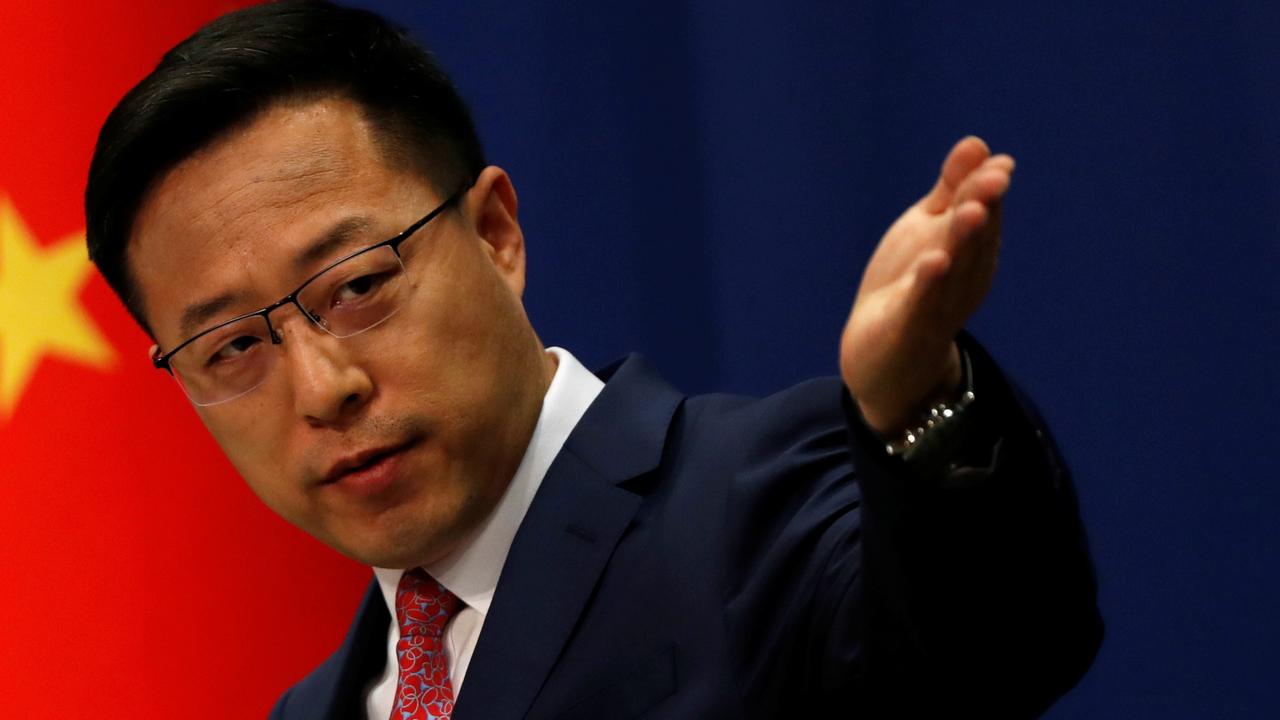
The latest example of terminology testiness was on Thursday via China’s Foreign Ministry spokesman Zhao Lijian.
Mr Zhao is one of China’s so called wolf warrior diplomats – which essentially translates as not being very diplomatic.
The name may ring a bell. Mr Zhao was the person who, following the allegations of unlawful killings by SAS soldiers, tweeted out the provocative fake image of an Australian soldier killing an Afghan child.
Last week, Mr Zhao took to Twitter to respond to the surprise publication of a previously top secret US document outlining its security ambitions in and around Asia.
This document, the US Strategic Framework for the Indo Pacific, detailed how Australia would play a key role in “preventing China from establishing new, illiberal spheres of influence”.
Beijing, as you can imagine, was furious about the document. But also the use of those two words.
“(It is) an ill-intentioned strategy to maintain the country’s hegemony in the ‘Indo Pacific,’” Mr Zhao wrote. Notably, that’s his speech marks placed around Indo Pacific, as if to signal it’s not a real term.
Continuing, Mr Zhao used his own preferred name for the region.
“The US should see the Asia Pacific as a region for mutually beneficial co-operation, not a chessboard for the zero-sum game of rivalry.”
The newly declassified US document reveals an ill-intentioned strategy to maintain the country’s hegemony in the “Indo-Pacificâ€. The US should see the Asia-Pacific as a region for mutually beneficial cooperation, not a chessboard for the zero-sum game of rivalry. pic.twitter.com/xqu9Ic1p0e
— Lijian Zhao èµµç«‹åš (@zlj517) January 13, 2021
BEIJING’S GRIPE WITH ‘INDO PACIFIC’
Indo Pacific and Asia Pacific may seem like very similar terms for a very similar area. And indeed they are, although where the borders of these indistinct regions lie is vague.
But China has long winced at the use of the term “Indo Pacific” the head of the Australian National University’s National Security College Rory Medcalf told news.com.au.
“Beijing gets riled about Indo Pacific, the term which appears to be prevailing.”
China prefers “Asia Pacific” as it puts it notionally in the middle of a hub stretching out into the Pacific.
“Indo Pacific is code for a large and inclusive vision of maritime Asia that is multipolar. China is prominent but not dominant in this vision,” Prof Medcalf said.
“It’s also code for a region where respect for rules, international law and equal sovereignty is the common ground.”
To Beijing, the preference for the term Indo Pacific by the US and other nations is a subtle but infuriating snub to its authority. Which is likely exactly the reason the US uses it. A lot.
RELATED: China snub: Aussie coal has last laugh
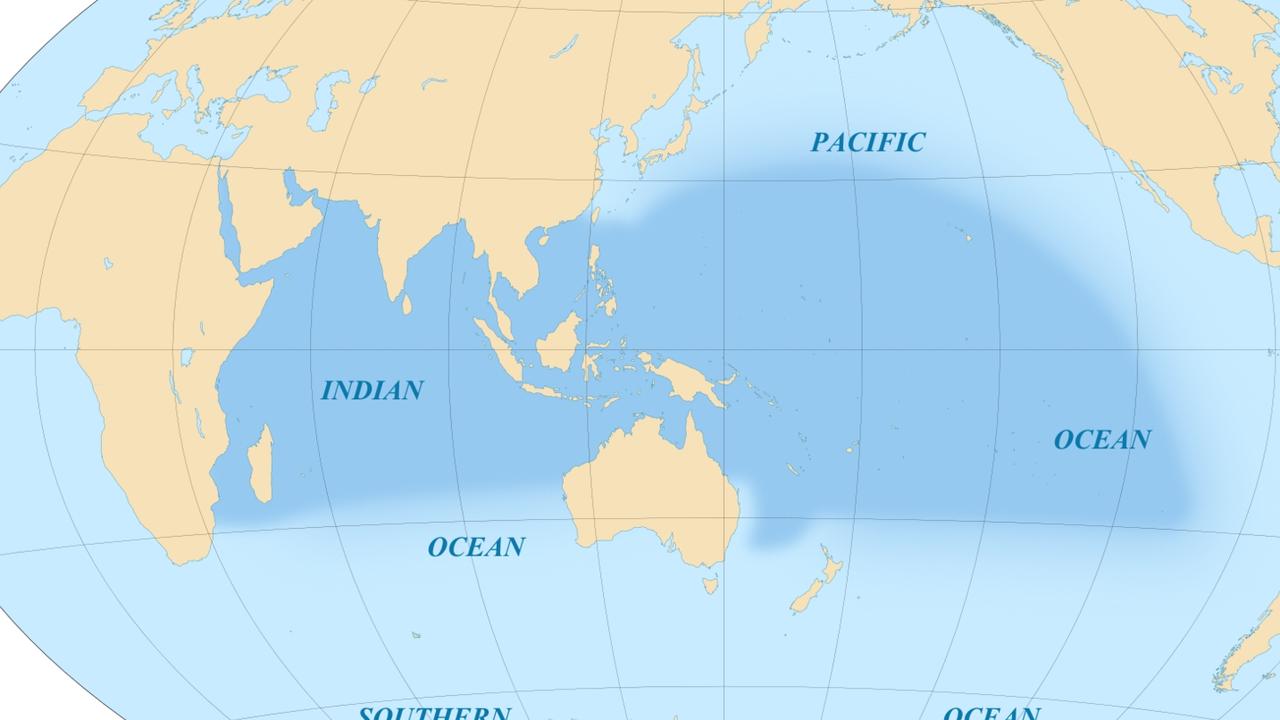
“Chinese Foreign Minister Wang Yi has gone to the trouble of publicly rejecting the Indo Pacific as an ‘attention-grabbing idea’ that ‘will dissipate like ocean foam,’” said Prof Medcalf.
The Global Times, like all Chinese newspapers ultimately answerable to the Communist government, has a habit of referring to the “so-called ‘Indo Pacific’”.
“China hears Indo Pacific as the rationale for a strategy to contain its power through a ‘quadrilateral’ alliance of democracies – the United States, Japan, India, Australia,” Prof Medcalf said.
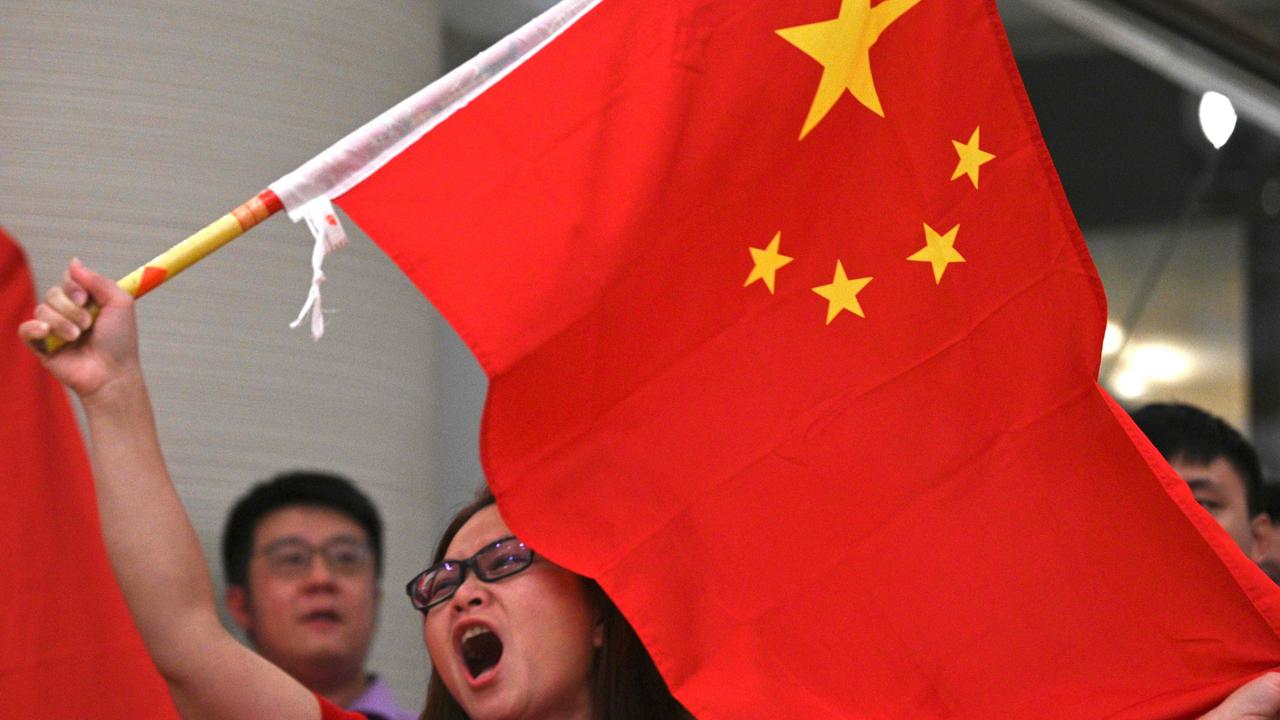
TOP SECRET US SECURITY DOCUMENT DECLASSIFIED
The declassifying of the US document was a surprise as it didn’t need to do so until 2043. Prof Medcalf, author of Contest for the Indo Pacific, called it “extraordinary”.
He speculated that officials within the Trump administration were keen to see the 2018 document last longer than their boss, US President Donald Trump.
The main goals are to maintain “US strategic primacy” in the region and promote a liberal economic order; contain China’s influence and defuse the threat from North Korea.
The document assumes Beijing will challenge Washington’s role in Asia and attempt to “dissolve US alliances”. A “strong India” would be a “counterbalance” to China’s ambitions.
Taiwan, which Beijing covets, should be helped to ensure its “freedom” from the People’s Republic.
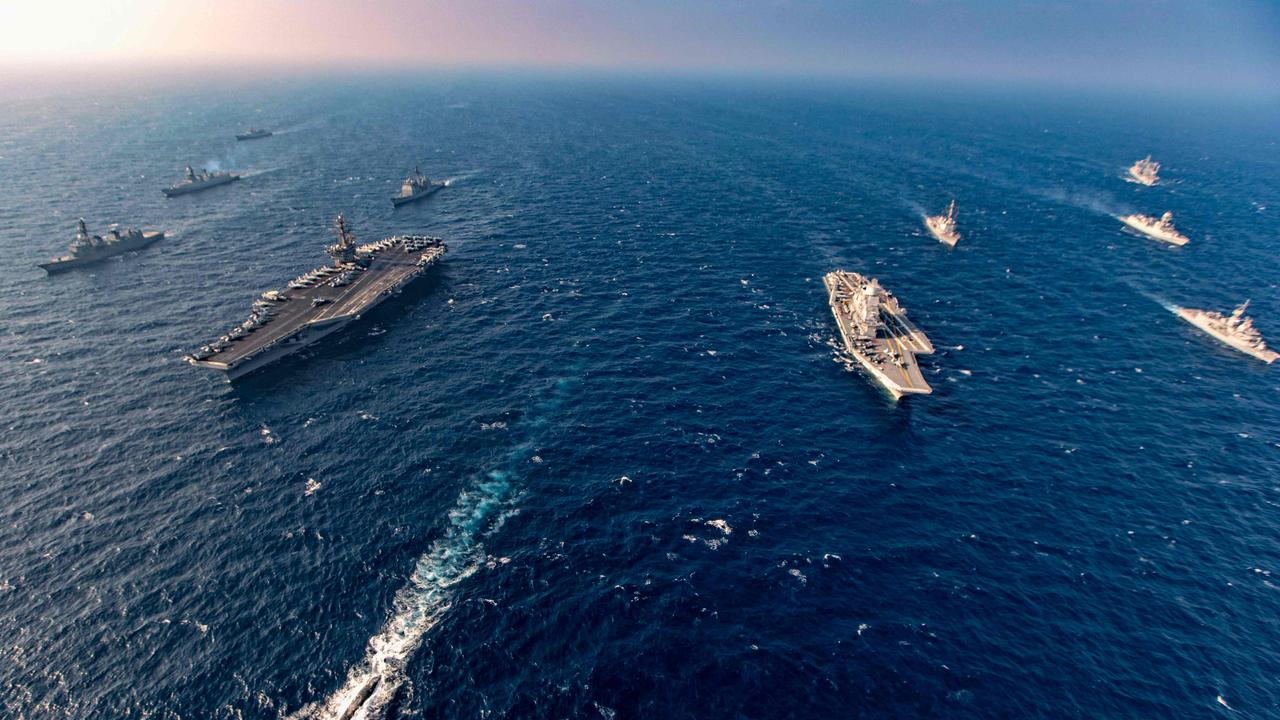
Elements of the framework are coming together. Australia, Japan, India and the US are frequently now referred to as the “quad”. All four nations took part in the Malabar naval exercises in the Indian Ocean late last year.
China’s Mr Zhao said the previously classified document showed the US had a “cold war mentality,” a common rebuke Beijing flings at Washington.
“The US is keen on forming cliques … taking shameful tactics such as sowing discord to destabilise regional stability and stir trouble.”
RELATED: How Joe Biden plans to tackle China
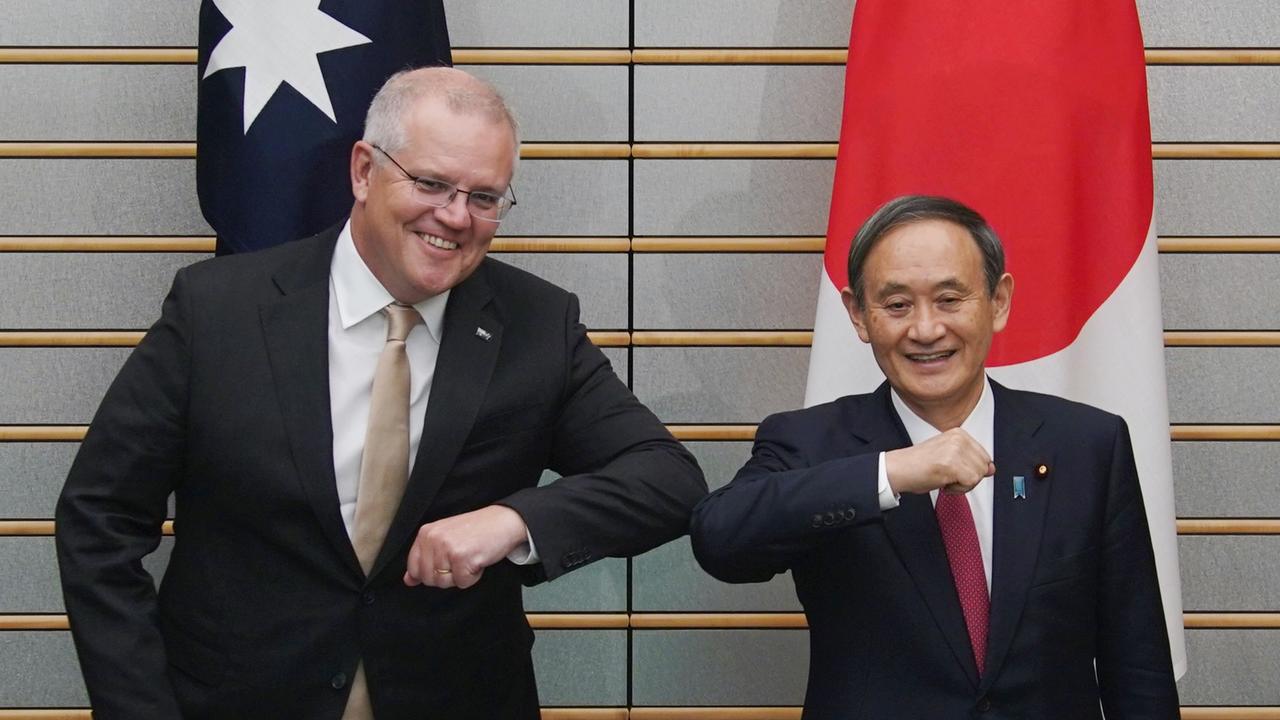
JOE BIDEN’S SUBTLE CHANGE OF WORDING
Prof Medcalf said US President-elect Joe Biden appeared to be fully on board with Indo Pacific.
“It’s very clear that the Biden administration is going to maintain not only the Indo Pacific terminology but, more importantly, the Indo Pacific approach, including bolstering India to balance and dilute China in the region.”
Writing in The Diplomat in November, the magazine’s Southeast Asia editor Sebastian Strangio said Mr Biden’s use of the term was “deliberate and consistent”.
But there was one shift in his language. The Trump framework emphasised a “free and open Indo Pacific”.
However Mr Biden has preferred the term “secure and prosperous”, using it in conversations with Prime Minister Scott Morrison as well as the leaders of South Korea, India and Japan in phone calls shortly after he won November’s election.
“Free and open” was vague, but could rile Asian nations that could be wooed by Washington, but were neither particularly free, nor open politics wise.
“‘Secure and prosperous’ indicates a shift to a more pragmatic register, one that is more closely aligned with the interests and outlooks of most Indo-Pacific nations,” Mr Strangio said.
Apparatchiks in Beijing might continue to shudder at mentions of “Indo Pacific”. But they may also be relieved by signs a President Biden won’t be trying all that hard to enforce democracy on China’s neighbours. That really would make Beijing bristle.




